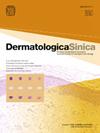The emerging role of Artificial Intelligence in diagnosis and clinical analysis of dermatology
IF 2.2
4区 医学
Q2 DERMATOLOGY
引用次数: 1
Abstract
Dermatology, as a highly intuitive clinical discipline, requires dermatologists to apply their own knowledge and clinical experience to make a reasonable diagnosis for various skin diseases. However, the diagnosis results are largely affected by the subjective consciousness of dermatologists, and there is a certain misdiagnosis rate, especially in areas with low medical levels. Therefore, there is an urgent need for more accurate, objective, and efficient auxiliary diagnostic tools to improve the diagnostic level of skin diseases. Facing an increasing number of patients and higher requirements for accurate diagnosis of diseases, Artificial Intelligence (AI) technology has attracted considerable attention in the field of dermatology. As a nonorganism, the computer is not affected by subjective consciousness, emotion, fatigue, and other factors in the recognition process. It helps to improve the efficiency of diagnosis and assists human doctors to provide objective and accurate diagnosis results. This paper systematically summarizes the research progress of AI in the diagnosis and application of skin cancers, acne, rosacea, onychomycosis, psoriasis, vitiligo, atopic dermatitis, and eczema diseases at home and abroad in recent years, hoping to help dermatologists have a deeper understanding of AI.人工智能在皮肤科诊断和临床分析中的新兴作用
皮肤科作为一门直观程度较高的临床学科,需要皮肤科医生运用自身的知识和临床经验对各种皮肤病进行合理的诊断。但诊断结果很大程度上受皮肤科医生主观意识的影响,存在一定的误诊率,特别是在医疗水平较低的地区。因此,迫切需要更准确、客观、高效的辅助诊断工具来提高皮肤病的诊断水平。面对越来越多的患者和对疾病准确诊断的更高要求,人工智能(AI)技术在皮肤病学领域引起了相当大的关注。计算机作为一个非有机体,在识别过程中不受主观意识、情感、疲劳等因素的影响。它有助于提高诊断效率,帮助人类医生提供客观准确的诊断结果。本文系统总结了近年来国内外人工智能在皮肤癌、痤疮、酒渣鼻、甲癣、银屑病、白癜风、特应性皮炎、湿疹等疾病的诊断和应用方面的研究进展,希望能帮助皮肤科医生对人工智能有更深入的了解。
本文章由计算机程序翻译,如有差异,请以英文原文为准。
求助全文
约1分钟内获得全文
求助全文
来源期刊

Dermatologica Sinica
DERMATOLOGY-
CiteScore
2.80
自引率
20.00%
发文量
28
审稿时长
>12 weeks
期刊介绍:
Dermatologica Sinica aims to publish high quality scientific research in the field of dermatology, with the goal of promoting and disseminating dermatological-related medical science knowledge to improve global health. Articles on clinical, laboratory, educational, and social research in dermatology and other related fields that are of interest to the medical profession are eligible for consideration. Review articles, original articles, brief reports, case reports and correspondence are accepted.
 求助内容:
求助内容: 应助结果提醒方式:
应助结果提醒方式:


